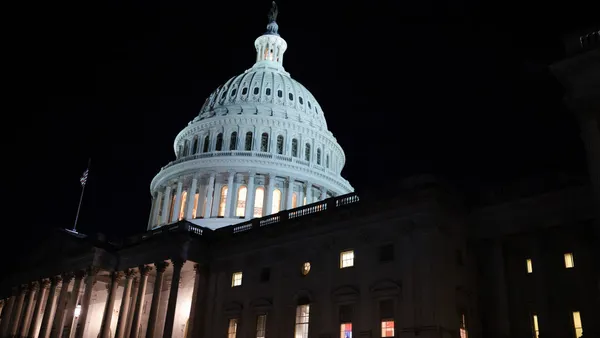Dive Brief:
- Almost 3 in 5 executives describe their leadership teams as strong advocates for the adoption of generative AI, according to a Capgemini survey released this month. The IT services and consulting firm polled executives at 1,000 global organizations.
- Despite interest in the technology, holdouts remain. Just 2 in 5 organizations are taking a “wait-and-watch” stance as the technology develops.
- Organizations interested in deploying the technology already have specific use cases in mind. Chatbots, data analytics and text processing are the three applications deemed most relevant by executives.
Dive Insight:
Executives have grappled with a monthslong rush toward new products and features in the emerging category of generative AI. And the deluge, analysts say, is only getting started.
Executives are closely watching the potential productivity enhancements that stem from the technology, but also the absence of guardrails and explainability, according to Scott Bickley, advisory practice lead at Info-Tech Research Group.
"I think CEOs should be thinking about how they can responsibly evaluate and implement generative AI solutions, or push them into solutions where their risk is very low," said Bickley.
Barriers to adoption have emerged almost as rapidly as the technology has developed. Governance, cost, data quality and maturity of the underlying IT stack all play a role in slowing down enterprise adoption plans.
But AI implementation has a higher chance of success when viewed as an expansion of the existing tech stack. Microsoft is among a long list of vendors baking generative AI capabilities into their product suite.
"Most organizations are going to benefit through looking at how [generative AI] can be additive from a productivity perspective," said Bickley. "Probably within enterprise software that they're already using today and then extending that use."















